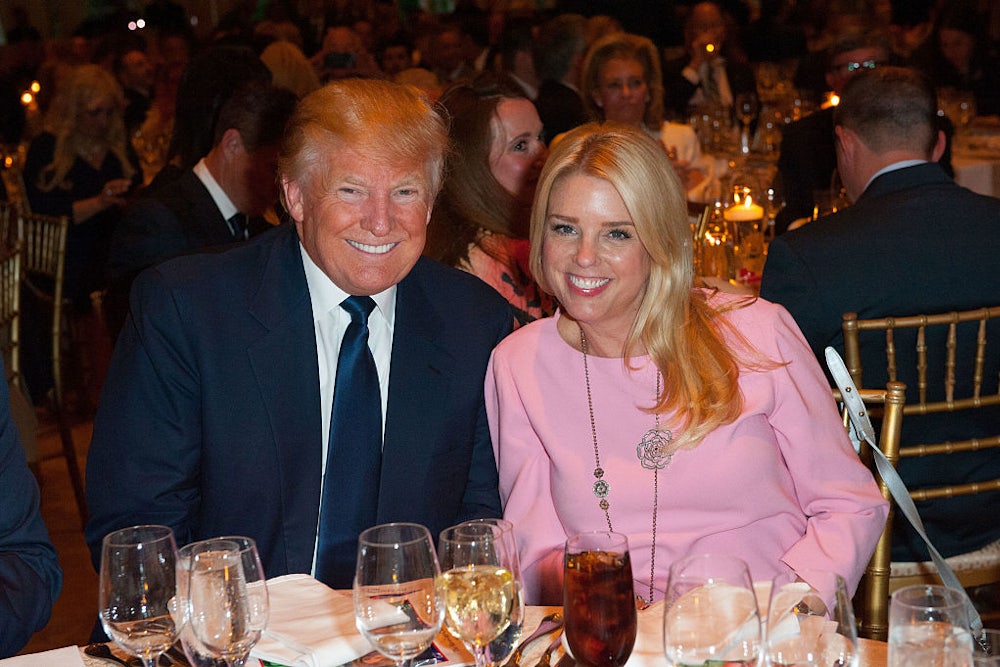Questions have been circulating for months about donations made by Trump to attorney generals in several states between 2011 and 2014, when many states were considering bringing lawsuits against Trump University. On Monday, Trump “dismissed questions about his failure to disclose an improper $25,000 contribution in 2013 to a political group connected to Florida Attorney General Pam Bondi” asked by The Washington Post. Bondi dropped the lawsuit shortly after the campaign contribution was made; Trump paid a $2,500 penalty to the IRS related to the illegal donation, which was made by a Trump-run charity, earlier this year.
“I never spoke to her, first of all,” Trump told the Post. She’s a fine person, beyond reproach. I never even spoke to her about it at all. She’s a fine person. Never spoken to her about it, never,” Trump said on Monday. “Many of the attorney generals turned that case down because I’ll win that case in court. Many turned that down. I never spoke to her.”
But Trump has repeatedly used his own experience with campaign finance as part of his “rigged system” argument, telling voters around the country that the wealthy use campaign contributions to get officials to do whatever they want. Here’s what Trump said in a debate last August, for instance: “I was a businessman. I give to everybody. When they call, I give. And you know what? When I need something from them, two years later, three years later, I call them, and they are there for me.” He added, “And that’s a broken system.” So, in Trump’s telling, he has used campaign contributions to get what he wants—just not in this one specific instance. Right.
